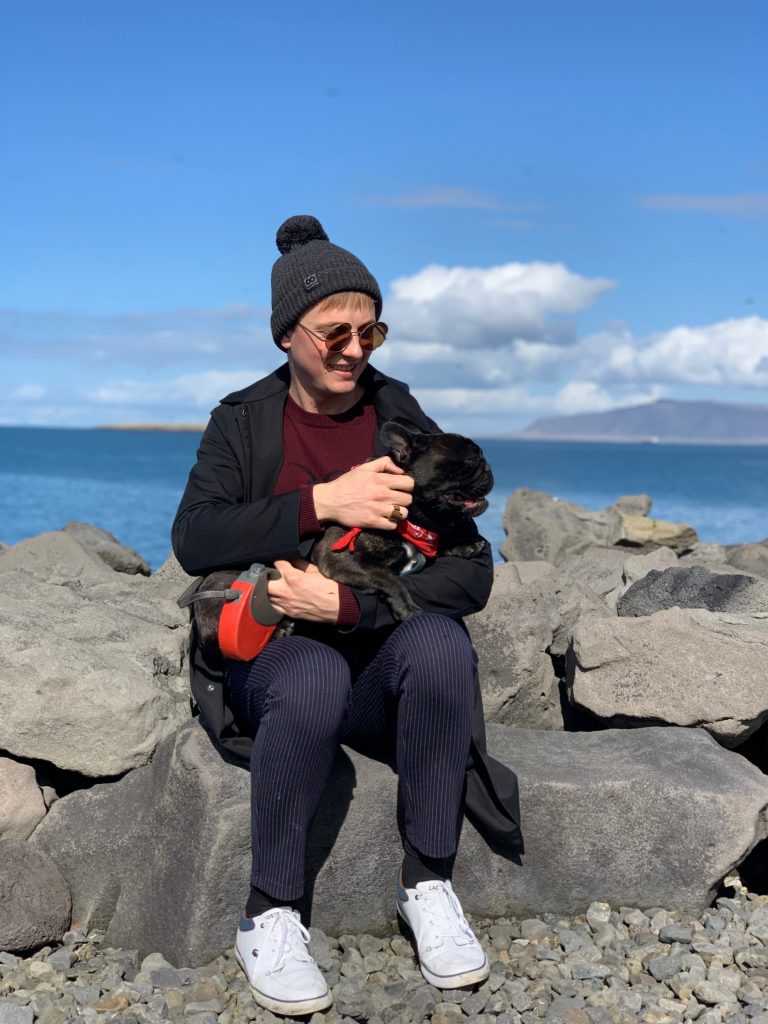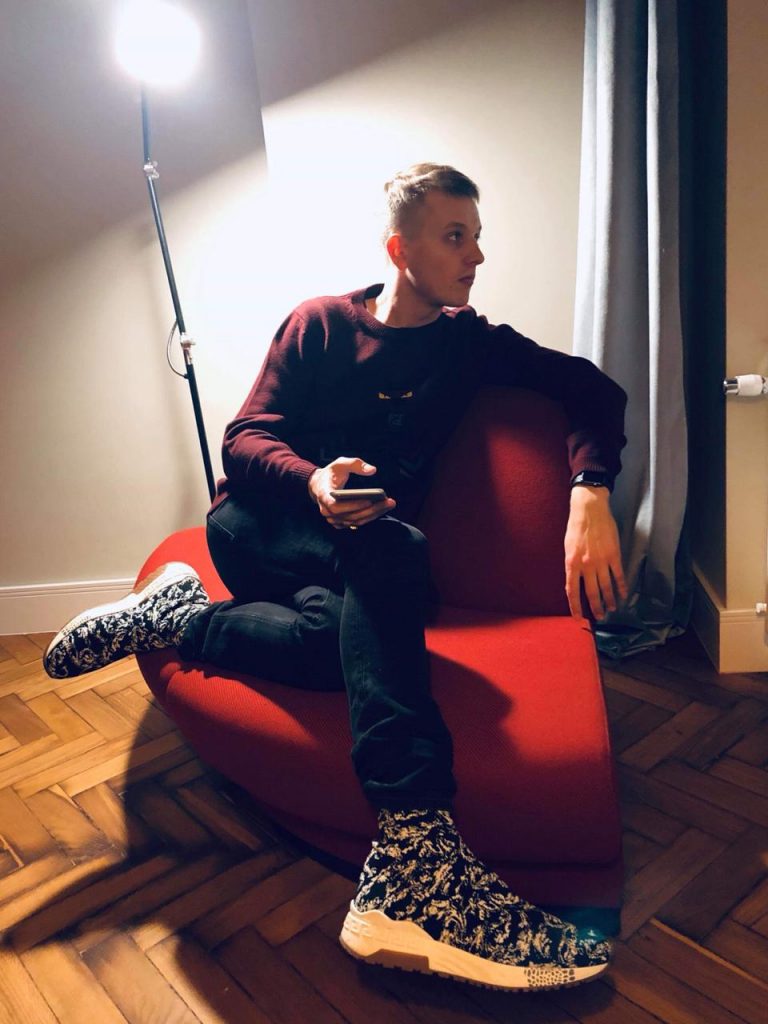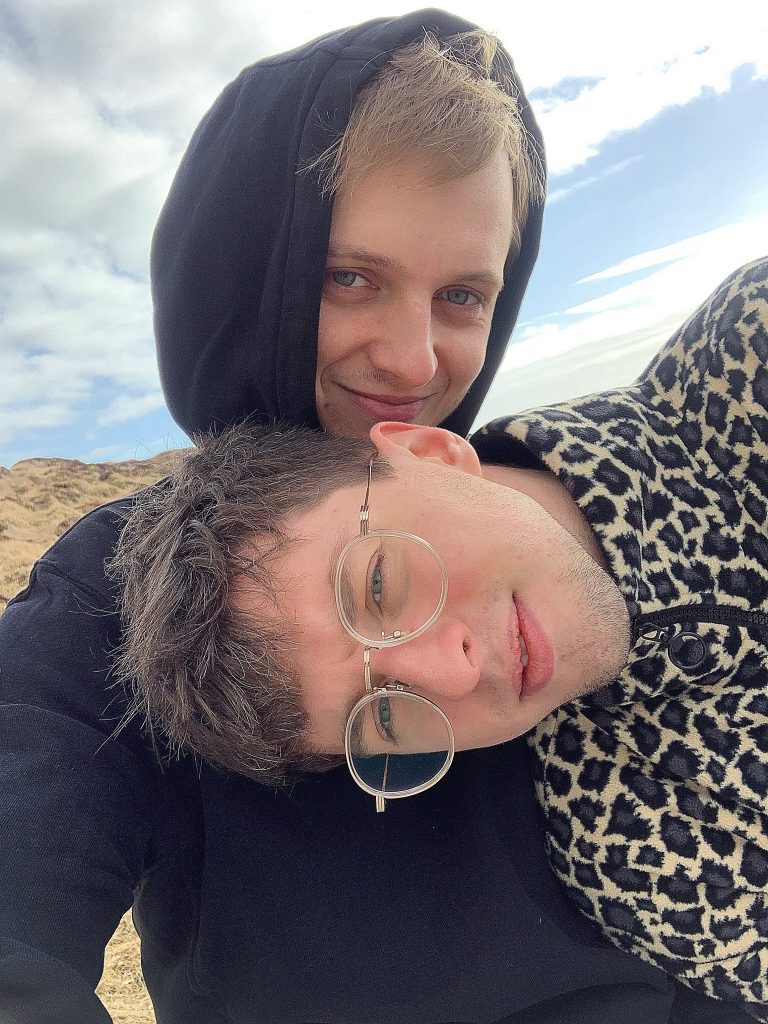What does it feel like to be Polish and queer and living in Iceland? Polish people make up the largest ethnic minority group in Iceland, presenting more than 40% of all immigrants in Iceland as of 2018. Last year it was estimated that over 19.000 people of Polish origin were living in Iceland. We at GayIceland are therefore keen to find out more about the Polish community in Iceland, the queer part of it to be more exact and what it feels like to be Polish and queer and living in Iceland. Today we interview a young gay man who has a boyfriend and a successful career in Iceland, but still misses his friends and family in Poland.

It was always Mateusz Przemysław Niewiara’s dream to visit Iceland. But he says it was always too expensive for him to travel from his native Poland for a vacation, so it wasn’t until February 2017 that he booked a one-way ticket to Keflavík and made that dream a reality.
“My target was to go there and start to find a job,” he says. He thought he would stay in Iceland for half a year, and if he didn’t get a promotion he would move somewhere else. But he got that promotion, and two years later he’s still here. Today he lives in lives in Reykjavík where he manages a local restaurant chain and lives with his boyfriend, who moved from Poland to join him in Iceland.
“I remember I always liked boys. But it was really hard because everyone was telling me that that was not normal.”
“I would say I was really happy in Poland,” he says. However, after lost a job in Warsaw he says he didn’t feel like living in his homeland anymore. He had a friend who moved abroad for work, so he says he decided to follow her lead and try it out.
Reflecting on his life in Iceland, he says he feels accepted in the country — both as a queer person and as a Polish person. His first boss in Reykjavík was also gay, so he says he doesn’t feel like he has to hide his sexuality from his co-workers or from anyone else he meets.
Hard coming out to his family
Mateusz says that he knew he was gay since he was about seven years old. “I remember I always liked boys,” he says. “But it was really hard because everyone was telling me that that was not normal.” He says it wasn’t until he met a group of teenagers in high school who were bisexual and encouraged him to accept his sexuality that he realized it was normal to be gay.
The hardest part for Mateusz was coming out to his family. He was raised in the Catholic religion, so he says he felt caught between two worlds. “I just needed time to choose what is more important and what expressed myself more,” he says. He was 18 when he eventually came out to his mother.
“She just heard the gossip about me and she called me in the morning to ask. I told her, ‘yeah, that’s true.’ I was already 18 so I just told her if you don’t want to accept it I can just move out now — but you’re my mother so you should understand,” he says. “She told me that I should go to some hospital to cure that and I told her, ‘No, there’s nothing wrong with me. You just have to understand. Maybe you can read something about it and change your mind.’
Of course that was hard and we didn’t talk for two weeks,” he says about the experience. “But then she started understanding and we were talking about it so that changed.” Today, Mateusz says he and his mother have a good relationship.
Staying optimistic
Despite the challenges he’s faced, Mateusz remains very positive. “I think if you are not optimistic it’s very hard to live,” Mateusz says. “I have learned in my life that if someone doesn’t want to accept me I don’t want to waste my time for those people. So that’s easy for me. If you want to accept me you have to accept me 100% as I am. If not we don’t have to talk to each other. I think that’s my rule.”

Unlike other gay Polish people who have been interviewed by GayIceland, Mateusz says he didn’t face many problems living publicly as a gay man in his home country. “When I had a boyfriend there was no problem to go to the city hand by hand and kiss my boyfriend,” he says. “That’s not a problem in downtown Warsaw or Krakow. But if you go to the smaller areas you can get some trouble.”
Although he didn’t move to Iceland because of problems in his home country, he does acknowledge that homophobia exists in Poland. “I think Poland is more homophobic than it is not,” he says. “I wouldn’t say it’s safe and I wouldn’t say it’s not safe, because it all depends on how you behave and where you are.”
He says he’s heard of people who have encountered violence or discrimination in Poland because of their sexuality, but that’s never been his experience. “I don’t know if I’m lucky or if there’s something wrong with me,” he says with a laugh. “I’m thinking about it now and I’m actually happy being gay.”
An uncertain future
When asked if he’s involved in the large Polish community in Iceland, Mateusz says that he generally tries to avoid it. “Polish people, they have their own districts. They live all together. They don’t speak any other language other than Polish,” he explains. Meanwhile, Mateusz says he has made an effort to learn the local language and mostly converses in Icelandic at work.
Mateusz says that what’s kept him in Iceland for the past two years is the high quality of life and how easy it is to get out of the city and experience nature. “I really like this slow life. You don’t have to hurry,” he says about life in Iceland. “I can travel a lot, I can do my job, and I feel like a free person.”
However, more than two years into his life in Iceland, he says he still isn’t sure what the future holds for him. “I am in a really good position right now in Iceland. I have a good career and everything is fine,” he says. “On the other hand I miss Poland and I miss my friends and family so I would like to be there.
“… there was no problem to go to the city hand by hand and kiss my boyfriend. That’s not a problem in downtown Warsaw or Krakow. But if you go to the smaller areas you can get some trouble.”
In the beginning I really wanted to stay here forever. But now because of all of this economic stuff here, the future here is not safe,” he says. When he moved here, he says the local currency the Króna was much higher. Since then, he says the economic situation has gotten worse. “I’m not going to stay here forever.”
See also: “I found love in Iceland” says queer Polish activist


